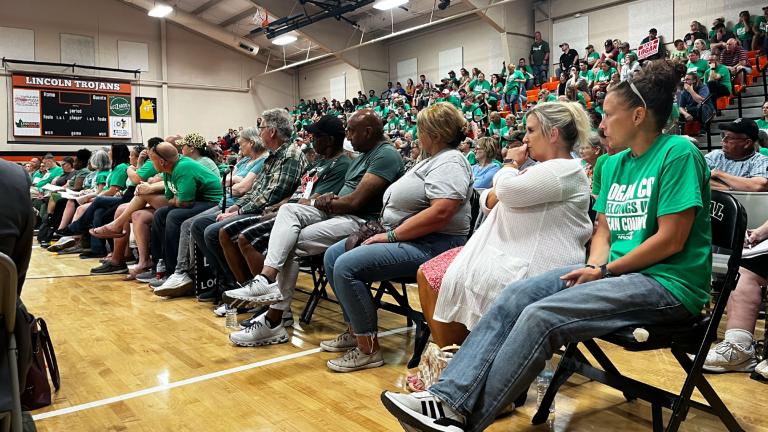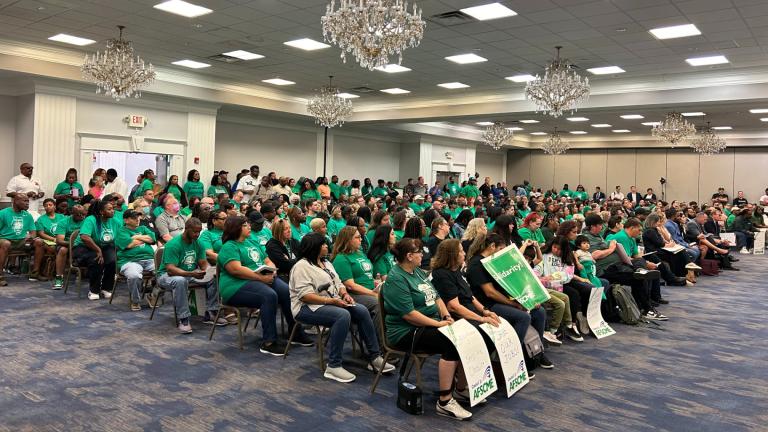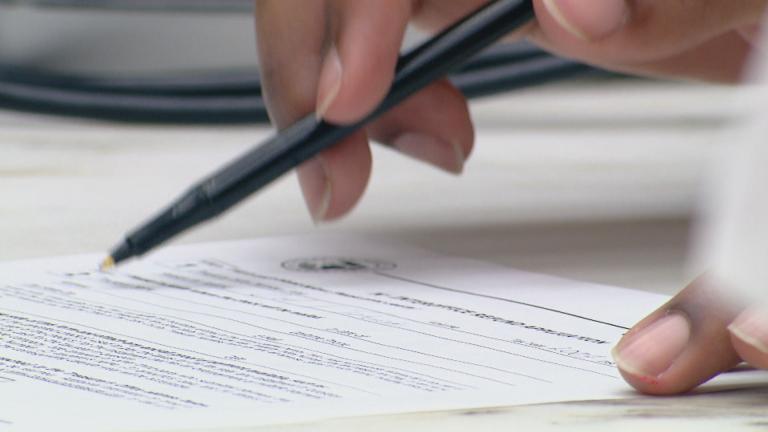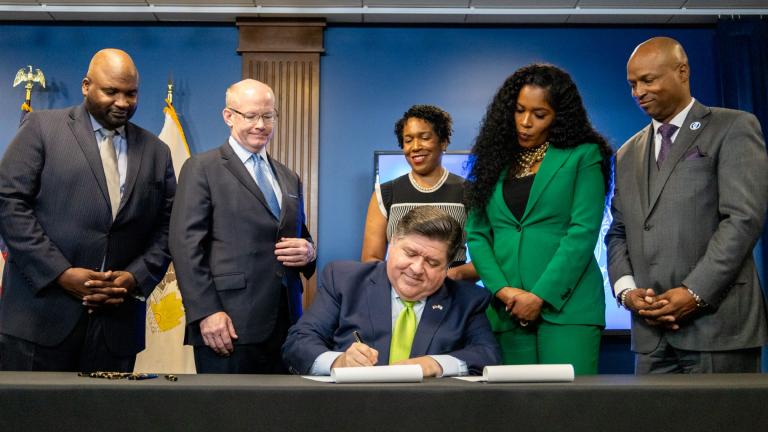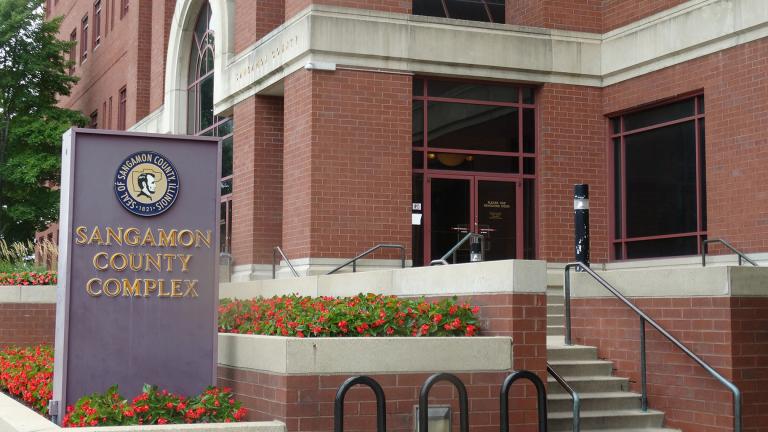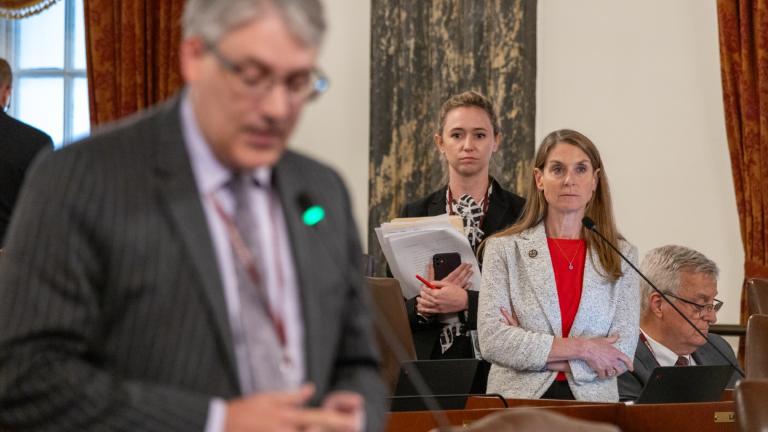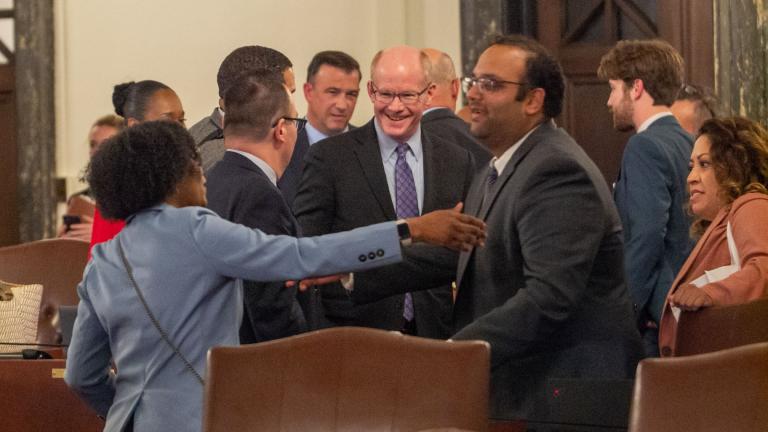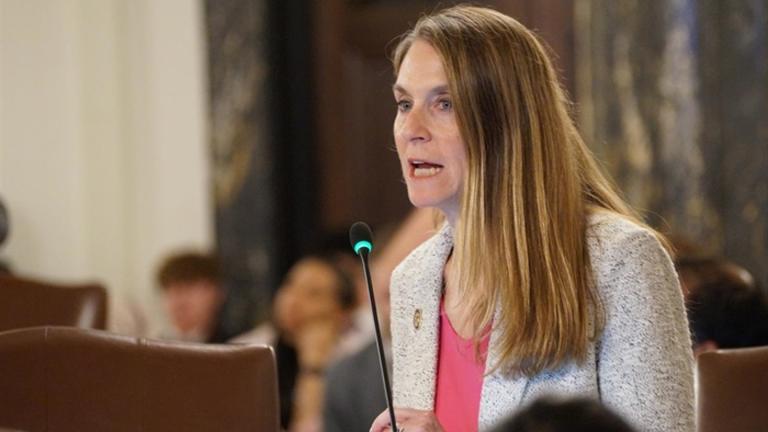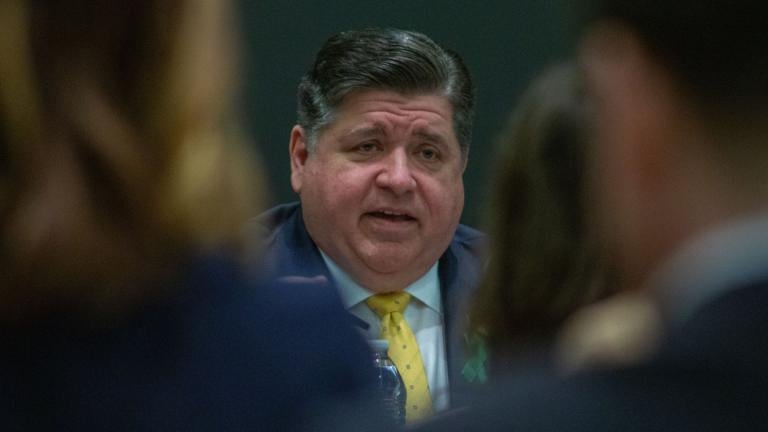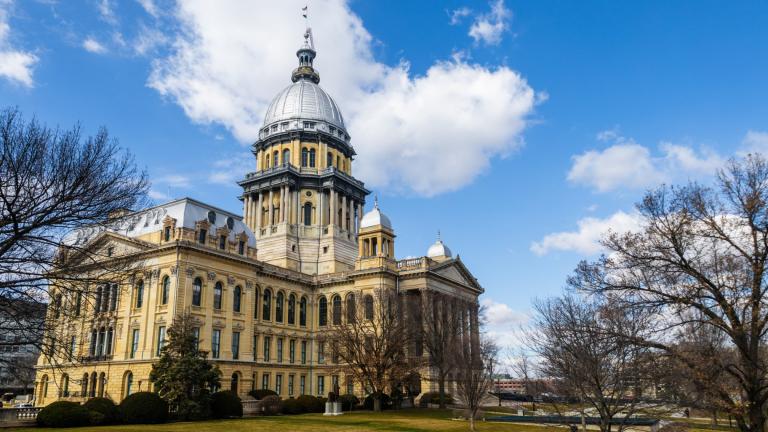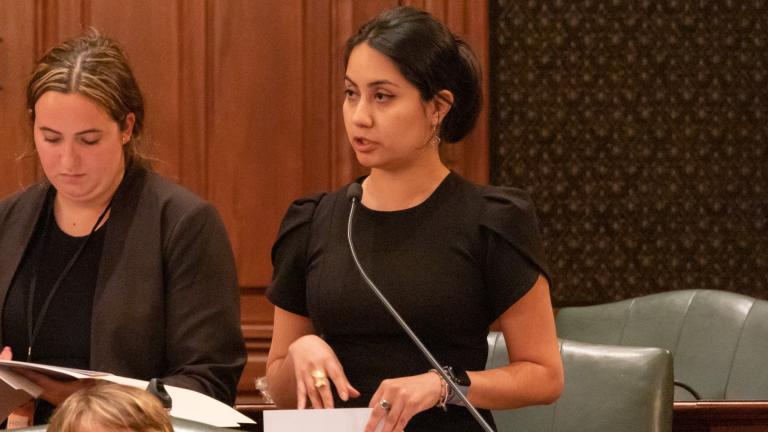Bump stocks became the focus of gun control debate following a 2017 mass shooting at a music festival in Las Vegas. A gunman used weapons equipped with bump stocks to fire more than 1,000 rounds into a crowd in a matter of minutes, killing 60 people and injuring more than 400.
J.B. Pritzker
Hundreds gathered at hearings this week to voice concerns over Gov. J.B. Pritzker’s administration’s plans to close and rebuild Logan and Stateville correctional centers. At a Friday meeting, one state lawmaker said, “This is really a concept and not a plan … because a plan has details.”
Hundreds of people gathered Tuesday night to try to sway a vote by the Commission on Government Forecasting and Accountability (COGFA) over Gov. J.B. Pritzker’s administration’s recommendation to close and rebuild Stateville Correctional Center.
The bill allows Illinois residents to get a judicial order to alter the name and sex on birth certificates and other documentation issued in another state. Currently in Illinois, the process no longer requires certification from a health professional, making it easier to request this change.
Declaring it a spending plan that’s “balanced, fiscally responsible, pro-family, cuts taxes on workers and opens up doors of opportunity,” Gov. J.B. Pritzker on Wednesday signed Illinois’ next state budget into law.
Illinois legislators passed 469 measures this year. The bulk of those items will likely become law, pending action from Gov. J.B. Pritzker. But in some cases, what lawmakers left on the table is equally significant as what passed.
Not only did the Chicago Bears and White Sox fail to win state funding for new stadiums before the General Assembly’s session ended last week, the teams shouldn’t expect to notch a legislative win later this year.
Democrats who control the General Assembly pushed the measure through the legislative process and Gov. J.B. Pritzker signed it into law in a matter of days last month, arguing that slating is unfair to voters who didn’t get a say in a primary contest.
While proponents of carbon capture technology say it is key to addressing climate change, it is often criticized for the risks it brings with it. A pipeline can burst, resulting in a flood of carbon dioxide for miles that can poison those caught in it.
The fiscal year 2025 spending plan, which came together over a stretch of late nights and closed-door dealmaking, spends $400 million more than what Gov. J.B. Pritzker proposed in his February budget address.
The Illinois House gave final approval Saturday to a pair of bills that limit the ability of insurance companies to deny coverage or steer individuals toward lower cost, and sometimes less effective, treatments and medications, strategies sometimes referred to as “utilization management.”
Other measures regulate garbage truck littering, allow yoga in schools
Lawmakers passed more than 200 bills this week ahead of their scheduled May 24 adjournment. Many of the measures will soon head to Gov. J.B. Pritzker, including a bill that changes how damages accrue under Illinois’ first-in-the-nation biometric data privacy law.
In the middle of Mental Health Awareness Month, Gov. J.B. Pritzker and Lt. Gov. Juliana Stratton hosted a panel in Springfield at which he pledged to expand the state’s behavioral health services.
“Illinois cannot simply hope that its remaining fiscal challenges will disappear on their own,” the Civic Federation says in a new report. “They will not until they are addressed head on.”
The juxtaposition of a popular program with how to pay for it highlights the tensions Illinois lawmakers face with weeks left before the end-of-month deadline to pass a new state budget.
During the early stages of the COVID-19 pandemic, Congress enacted changes to Medicaid requiring states to keep patients continuously enrolled through the public health crisis, even if they might have become ineligible due to changes in their income or family circumstances. That continuous enrollment program expired in March 2023.


